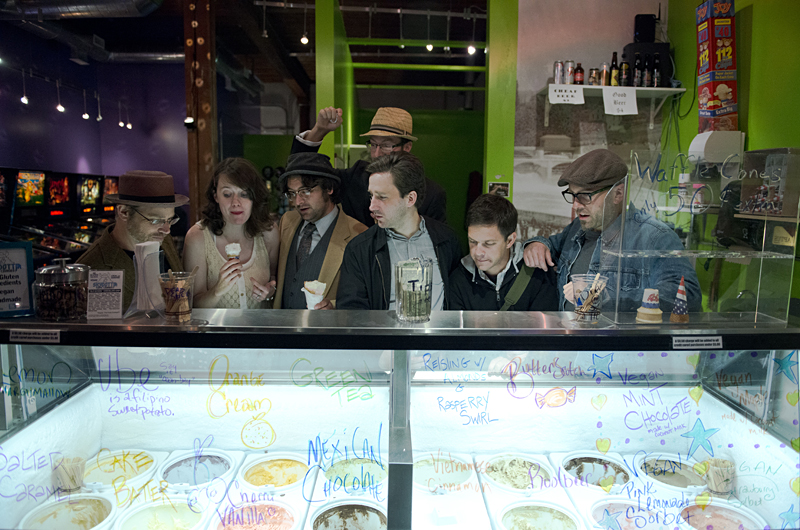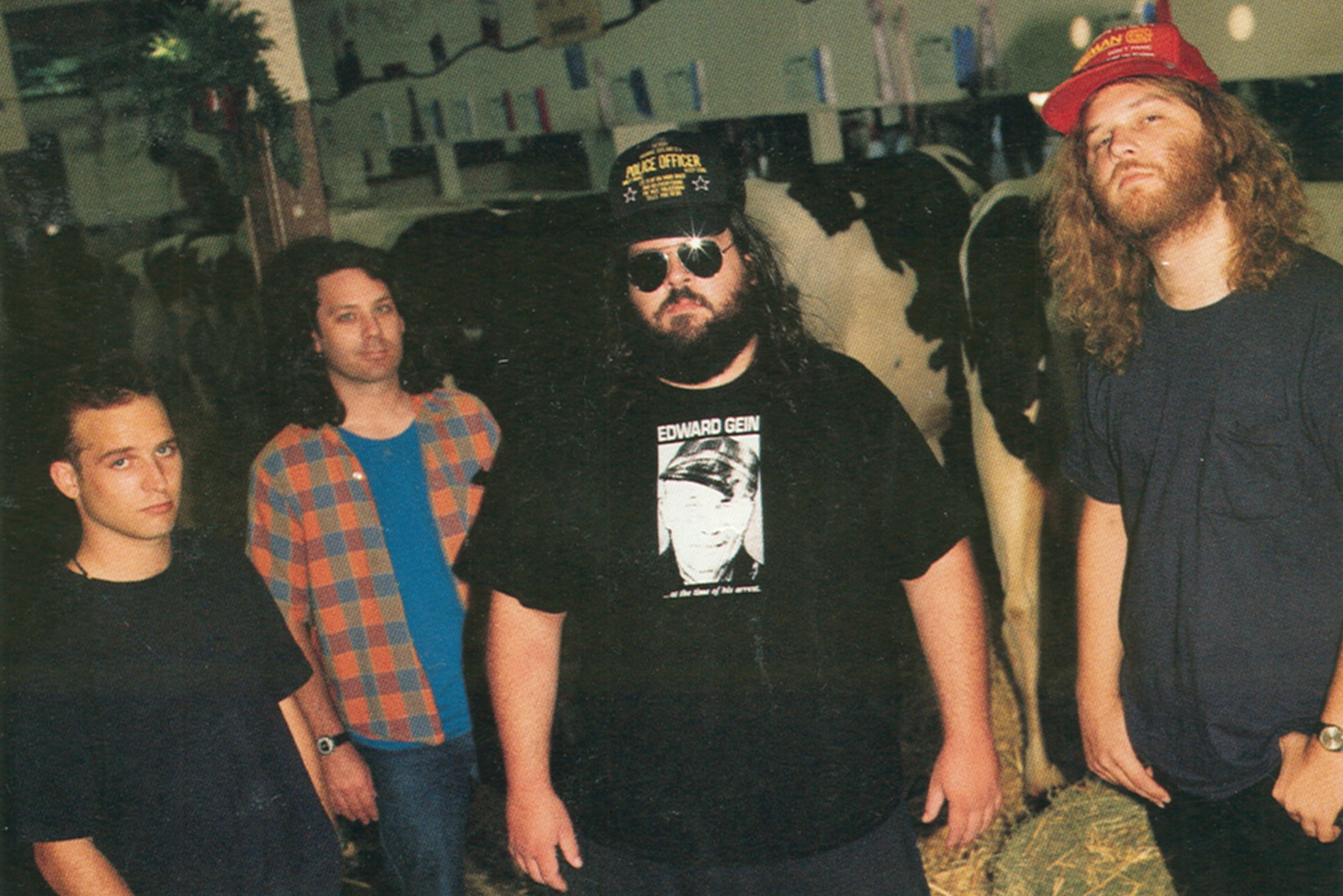Not many Seattle rock bands have a history that includes trans- Icelandic tours, Brooklyn bluegrass acts, and Fulbright scholarships, but most bands aren’t the Foghorns. Founded by Bart Cameron in 2001, the band’s history is as colorful as their music, a folky Americana hodgepodge that includes a variety of instruments and just as many surprises.
Their story starts on the shores of Lake Michigan in Cameron’s childhood hometown of Racine, Wisconsin, where he traveled after 9/11 and wrote some songs with friends—songs he brought back to Brooklyn a few weeks later, and which eventually made their debut in a bluegrass style, which wouldn’t be so weird if the Foghorns were supposed to be a bluegrass band.
Cameron had become enmeshed in the bluegrass scene on Atlantic Avenue in Brooklyn. Though it wasn’t a genre he had a particular affinity for, there was a rich musical community in his neighborhood’s bars and clubs. He explains its initial appeal: “It was easy to borrow an instrument,” which allowed him to sit in on guitar or bass with a slew of bands on virtually any night of the week. One of them, the Cobble Hillbillies, became the backbone of the Foghorns’ original lineup, and that spirit of musical camaraderie remains part of the Foghorns’ DNA.
The band worked hard, releasing two independent albums and playing as often as they could. But in 2003, Cameron, then an aspiring writer, headed to Iceland on a Fulbright. “I wanted to write a book like the Icelandic fiction I’d become obsessed with,” he said. “At the time, there weren’t a lot of people traveling there, but it fascinated me.”
Overseas, Cameron put together a version of the Foghorns that was more in line with his original vision: an anti-folk group that utilized accordions, French horns, buckets, and anything else they could get their hands on. The band did several trans-Icelandic tours, played some major festivals, and released several more independent records before Cameron graduated and relocated to Seattle in 2006, where he’s been ever since.
Over the past few years, the band has become a celebrated local act, with regular gigs at the Comet, the Blue Moon, and the Tractor. Last year the band issued To the Stars on the Wings of a Pig, the first release from local label Knick Knack and the first the band didn’t have to finance themselves. SW music editor Chris Kornelis called the record “one of the most substantially listenable local albums of the year; easy to access, and hard to put down.” The album is warm with vintage instruments and hummable melodies—which makes sense given Cameron’s occasional gigs at a local studio, where his job is simply to coax great sounds out of the mikes, amps, and recording equipment of decades past.
Despite the band’s recent momentum, Cameron remains cynical about the music business and cautiously optimistic about future success, saying he doesn’t know any bands that have gotten popular nationally that haven’t had to compromise artistically. “It’s been strange times,” he said. “We keep watching bands we play with end up on TV. I have no idea how popular music works,” he added. “I know we’re working on good songs, but we’re not spending too much time on the haircuts.”








